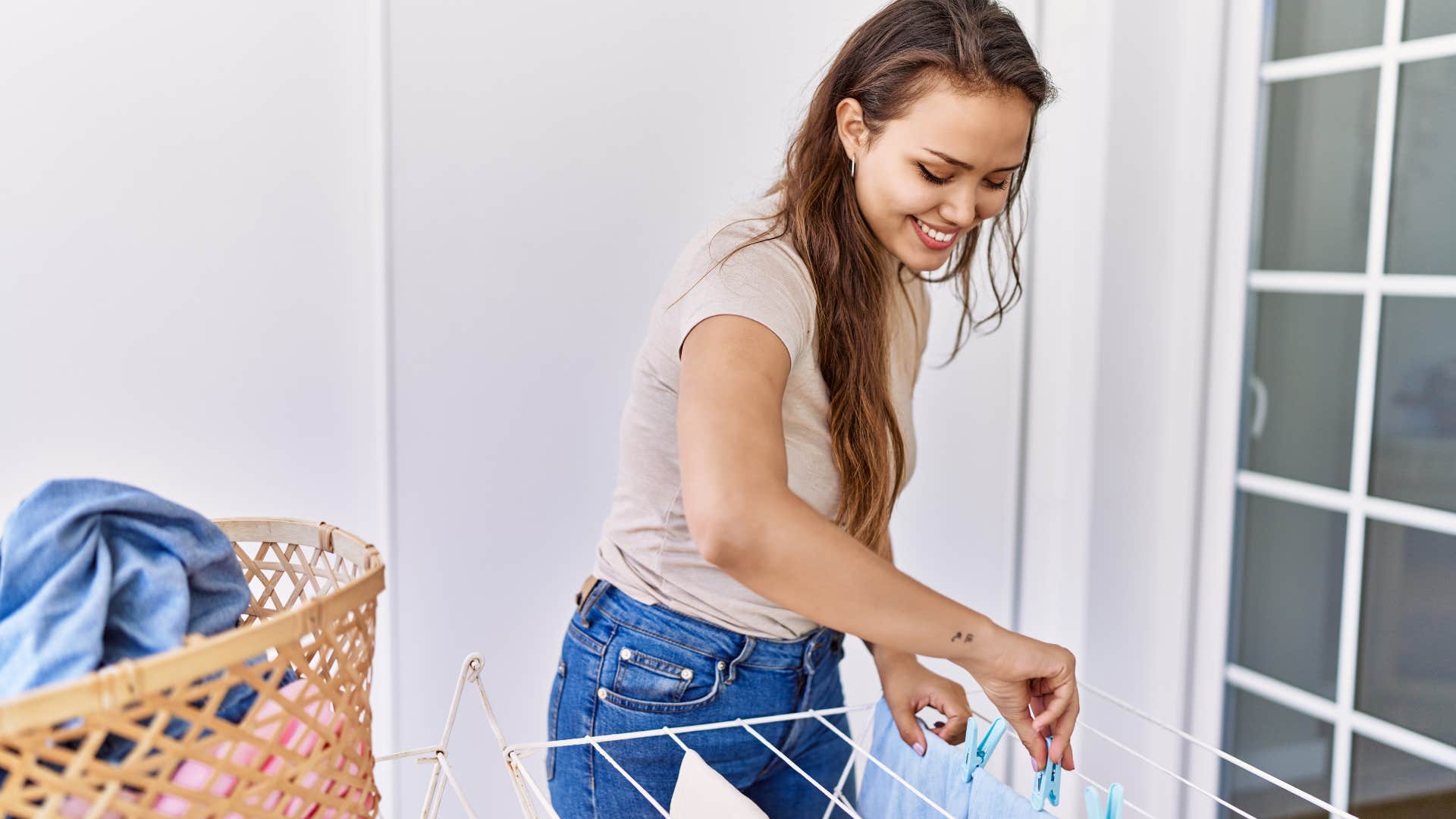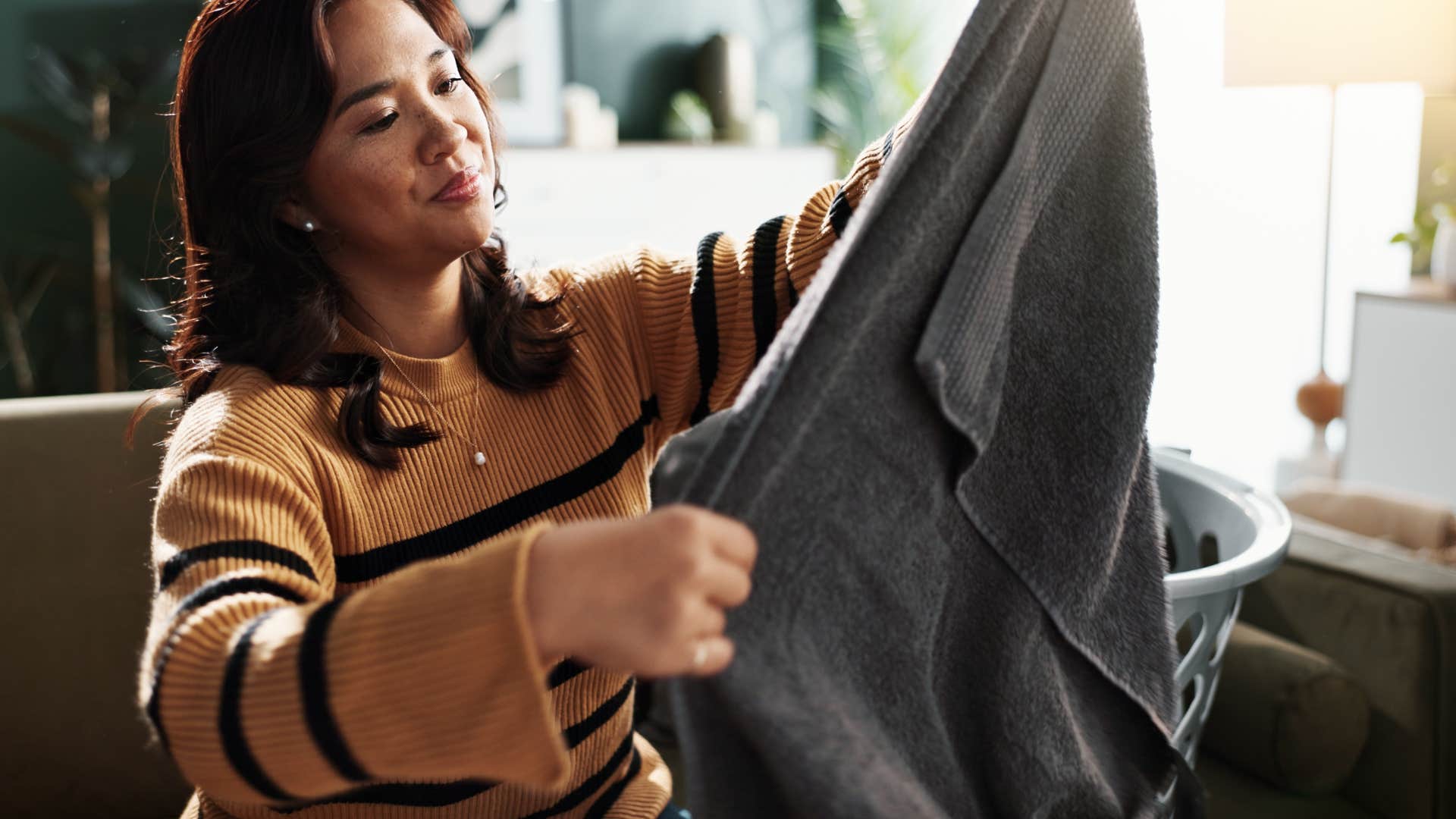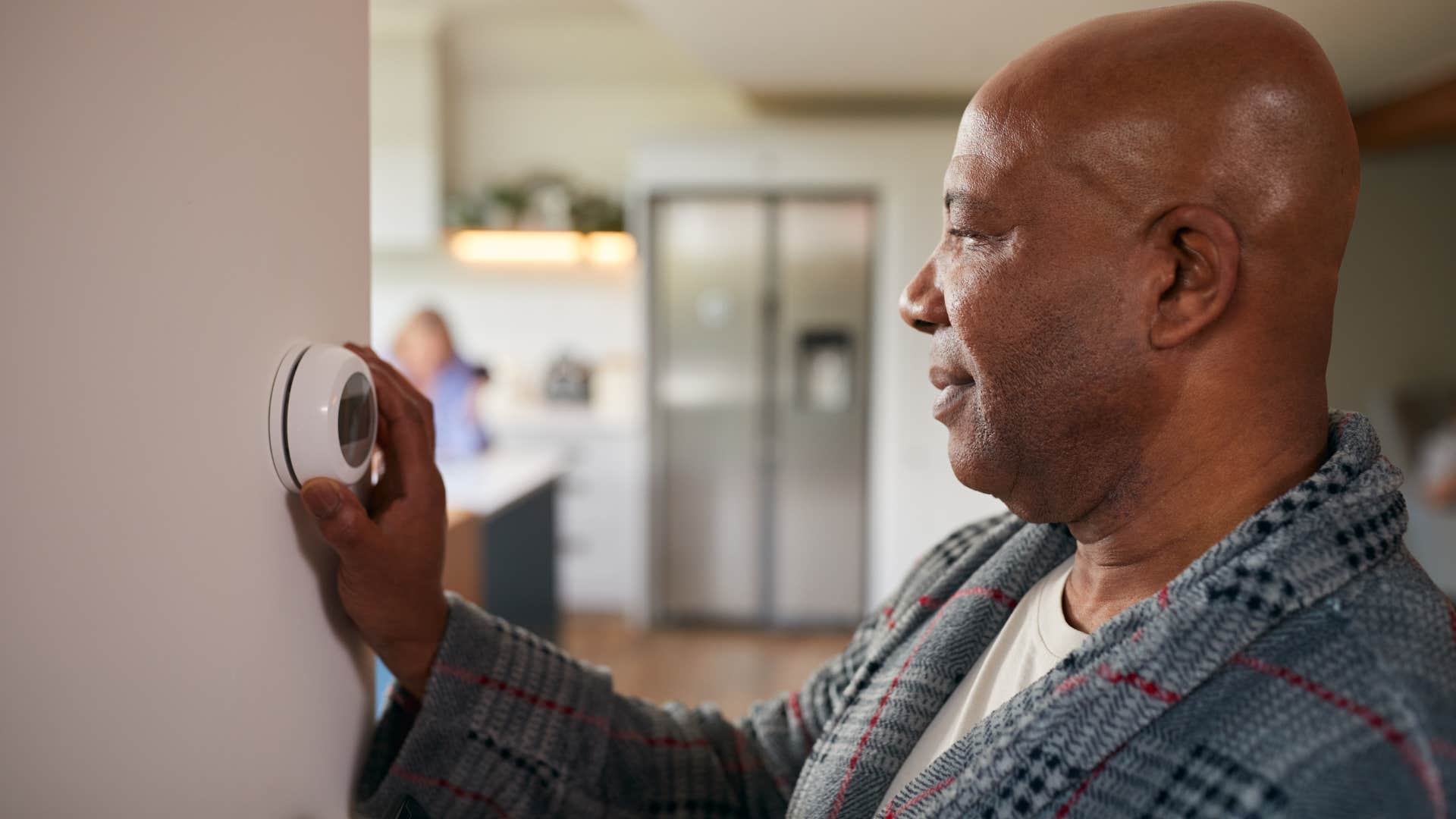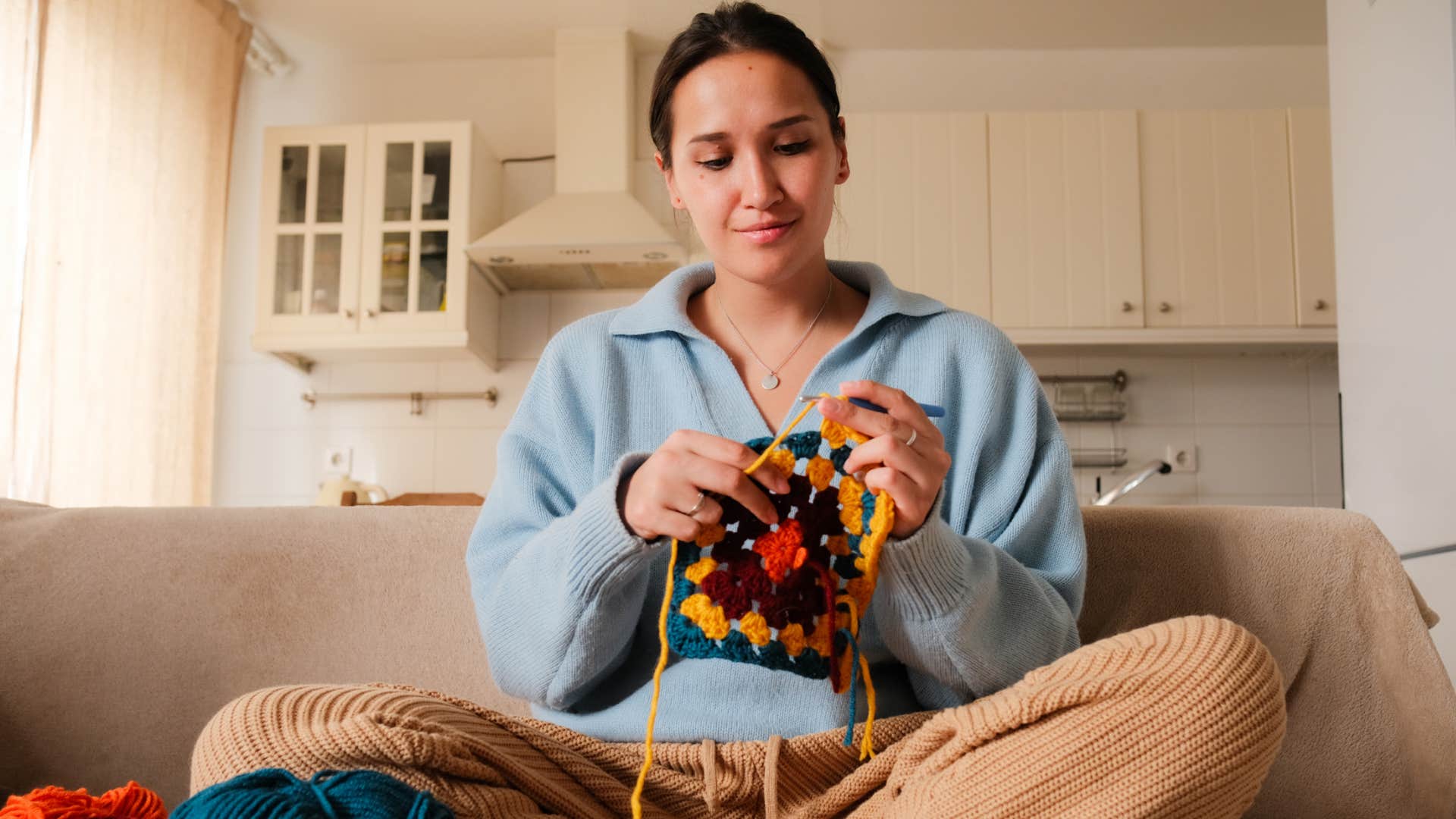If Your Home Has These 11 Small Things, People Assume You're Extremely Frugal
They can't help but notice these subtle signs.
 Pixel-Shot | Shutterstock
Pixel-Shot | Shutterstock Our homes are not only environments of self-expression, indicators of our internal well-being and emotional health, or centers for social connection and solitude — they're also embodiments of our financial status. From home decor, to groceries, and even furnishing choices, everything inside of our home can tell a story about our spending habits and financial priorities.
Whether it's stylish elements or more functional tools, if your home has these small things, people assume you're extremely frugal, even if you're just intentional about conserving resources or saving money where you can.
If your home has these 11 small things, people assume you're extremely frugal
1. Reusable rags
 VGstockstudio | Shutterstock
VGstockstudio | Shutterstock
Rather than leveraging the convenience of single-use paper products like paper towels, many frugal people instead rely on sustainable, eco-friendly, and cost-effective alternatives like reusable cloths and rags. Even if they end up taking more time and effort — making the rags, reusing them, and washing them throughout the week — it ends up saving them hundreds of dollars over the course of a year.
So, if you have these eco-friendly alternatives in your home for cleaning and cooking, people assume you're extremely frugal, even if you're simply willing to spend more time to save more money.
2. DIY cleaning supplies
 AlexandrMusuc | Shutterstock
AlexandrMusuc | Shutterstock
According to a Statista survey, the average person spends more than $700 annually on cleaning supplies, so it's not surprising that it's one of the areas that frugal people make an effort to save money on. If they're not buying low cost-alternatives and bulk items like vinegar at the store, they're making their own products to save money. So, if your home has some of these small DIY options, people assume you're extremely frugal.
Of course, vinegar isn't the "end-all-be-all" cleaning solution, nor is mixing and making all kinds of cleaner healthy and safe, but sometimes frugal people's intentionality amid a consumerist culture ensures they're not overspending on basic chores and household rituals.
3. Regifted items and decorations
 Dragana Gordic | Shutterstock
Dragana Gordic | Shutterstock
As long as they're following some of the basic etiquette rules and manners of regifting, why wouldn't frugal people try to save money by reusing holiday decorations, gifts, and wrapping? Not only is it hardly ever noticeable to the person receiving it, it saves frugal people the money, time, and transportation costs of going out to buy a gift and wrap it — especially for someone they don't know incredibly well.
However, if your home has these small things, people assume you're extremely frugal — largely because others would prefer to lean into the trendiness and consumerism of holiday and gifting culture when the opportunity comes around.
4. A clothesline
 Krakenimages.com | Shutterstock
Krakenimages.com | Shutterstock
If you have a clothesline in your home, people may automatically assume you're extremely frugal. Many people frame their habits and routines strictly around time and convenience, opting for more expensive laundry appliances to save them time amid the chaos of work and family responsibilities. They may simply have the money to waste on it or they'd prefer to save time, rather than money.
Of course, washing machines and dryers do tend to be the biggest energy sources at home, so it's not surprising that frugal people make an effort to cut back on their costs when they can. Whether it's waiting to do a single load of laundry once a week or air drying their clothes on a clothesline, it's these small and unsuspecting frugal habits that actually make a big difference.
5. Reused containers
 VH-studio | Shutterstock
VH-studio | Shutterstock
If you keep leftovers in an old butter container or use jam and jelly jars for coffee in the morning, guests may immediately assume you're extremely frugal — and you might be, but that also makes you financially smart. Rather than investing in the expensive consumerist culture of matching plates and utensils, overpriced tupperware, and low quality alternatives, you simply reuse and conserve things as they are.
That's the fundamental difference between frugal people and their wasteful counterparts — they're more intentional about conserving their resources and living a sustainable life because of those habits, not wasting for the sake of fitting in.
6. Worn bath towels
 PeopleImages.com - Yuri A | Shutterstock
PeopleImages.com - Yuri A | Shutterstock
Frugal people often don't care about the aesthetic touches of a home that other people spend their financial security on trying to achieve. Whether that's a color coordinated aesthetic throughout the house or simply matching towels in the bathroom, they prefer to prioritize longevity and practical usage over vibes.
That's why worn towels or mismatched sets are some of the small things in a home that urge people to assume you're extremely frugal.
7. A strict thermostat
 Monkey Business Images | Shutterstock
Monkey Business Images | Shutterstock
If someone walks into your home in the winter and it's freezing or overly warm in the summer, they're immediately going to assume you're extremely frugal — unless you live in a historic old home. However, this is one of the tactics many frugal people do use to save on their energy bills every month.
Even if it's just adjusting the thermostat when they're at work or out of the house to account for the weather, they can save between 10 and 15% more annually on their energy expenses simply by being more energy efficient and intentional with the temperature of their home.
8. Reused and mended furniture
 PeopleImages.com - Yuri A | Shutterstock
PeopleImages.com - Yuri A | Shutterstock
Whether it's food waste — which studies show frugality and intentionality often curb — or simply wasting money, many frugal people don't mind getting innovative to reuse, recycle, and minimize their waste. From sewing old clothes to mending and repairing worn furniture, they don't mind putting aesthetics to the side and focusing solely on functionality and practicality to save money.
Especially if it serves as a temporary fix, giving people the time and space to save for a quality purchase that will last them much longer in the future, they don't mind — even if it's a clear indicator of their frugality to guests and visitors.
9. Public transportation cards
 Zamrznuti tonovi | Shutterstock
Zamrznuti tonovi | Shutterstock
If your home has small things visible — like public transportation cards and passes — people assume you're extremely frugal.
Considering the average person spends more than 20% of their annual salary on commuting costs, it's not surprising that frugal people put a lot of time and effort into planning a cost-effective commute. Whether it's carpooling with a spouse or co-workers, taking public transportation, or walking, they don't mind cutting costs with less convenient commuting alternatives.
Rather than wasting $10K a year on commuting costs, they make a plan, invest in programs and cards to save money on public transit, and make sacrifices — like owning a car or prioritizing convenience — to give them financial freedom down the road.
10. Generic products
 Monkey Business Images | Shutterstock
Monkey Business Images | Shutterstock
From groceries to clothing brands, if your home is made up entirely of generic alternatives, people assume you're extremely frugal. Even though they often work, taste, and feel the same as brand-name options, generic products are consistently cheaper and more accessible, which is why frugal people often purchase them to save money.
For the average person, who buys into trends and brand-names for a sense of belonging and status, they may notice these intentionally frugal alternatives, while others — who save money and focus on conservation — simply focus on outcomes and functionality.
11. Homemade things
 Maria Galutva | Shutterstock
Maria Galutva | Shutterstock
Whether it's homemade pantry staples or holiday decorations, frugal people are known to get crafty and rely on DIY alternatives to save them money. It may be one of the first things someone notices when they enter your home — assuming you're frugal, while they waste money on store bought and convenient alternatives — but it's also often a sign of financial responsibility.
Some people even suggest that living a frugal lifestyle keeps them creative and innovative for this reason — they're always thinking outside of the box to save and make the most out of the money they do spend.
Zayda Slabbekoorn is a staff writer with a bachelor's degree in social relations & policy and gender studies who focuses on psychology, relationships, self-help, and human interest stories.

